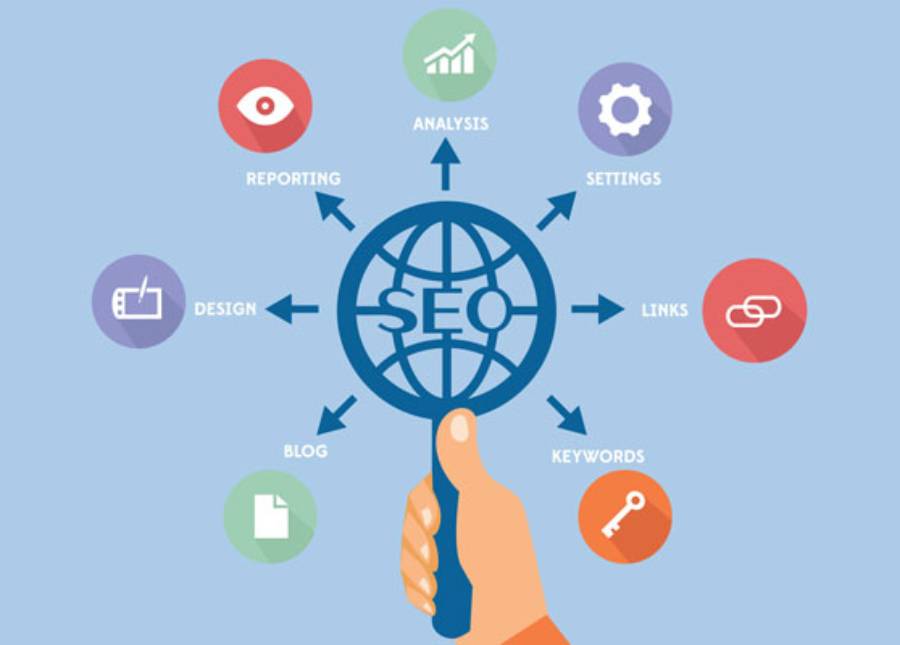SEO and PPC: Choosing the Right Strategy for Your Business

SEO and PPC: Choosing the Right Strategy for Your Business
In today’s digital landscape, businesses are constantly seeking effective ways to increase their online visibility and drive targeted traffic to their websites. Two popular strategies for achieving these goals are Search Engine Optimization (SEO) and Pay-Per-Click (PPC) advertising. Both SEO and PPC offer unique benefits and challenges, and understanding the differences between the two is crucial for making informed decisions about your digital marketing strategy.
Understanding SEO:
SEO is the process of optimizing your website to rank higher in organic search engine results. This involves various techniques such as keyword research, content optimization, link building, and technical optimizations. The goal of SEO is to improve your website’s visibility and attract organic traffic from search engines like Google, Bing, and Yahoo.
Benefits of SEO:
Long-Term Results:
Unlike PPC, which stops generating traffic once the budget is exhausted, SEO efforts can provide long-term results and sustainable traffic over time.
Cost-Effective:
While SEO requires upfront investment in terms of time and resources, the ongoing maintenance costs are relatively low compared to PPC advertising.
Credibility and Trust:
Organic search results are perceived as more credible and trustworthy by users compared to paid advertisements, leading to higher click-through rates.
Challenges of SEO:
Time-Consuming:
SEO is a long-term strategy that requires patience and consistent effort to see results. It can take several months to start ranking well for competitive keywords.
Algorithm Updates:
Search engine algorithms are constantly evolving, requiring continuous adjustments to your SEO strategy to maintain or improve rankings.
Competition:
The competitiveness of certain keywords and industries can make it challenging to achieve top rankings in organic search results.
Understanding PPC:
PPC advertising, on the other hand, is a paid digital marketing strategy where advertisers pay a fee each time their ad is clicked. This model allows businesses to bid for ad placement in search engine results pages (SERPs) and other online platforms like social media networks.
Benefits of PPC:
Immediate Results:
Unlike SEO, PPC campaigns can generate immediate traffic to your website as soon as the ads are launched and approved.
Targeted Advertising:
PPC platforms offer advanced targeting options, allowing you to reach specific demographics, locations, and user interests with your ads.
Measurable Results:
PPC campaigns provide detailed analytics and performance metrics, enabling you to track the effectiveness of your ads and optimize them for better results.
Challenges of PPC:
Cost:
PPC advertising can be expensive, especially for highly competitive keywords and industries. The cost per click (CPC) can vary depending on factors like ad relevance, quality score, and bidding strategy.
Ad Fatigue:
Users may become immune to seeing the same ads repeatedly, leading to ad fatigue and decreased click-through rates over time.
Learning Curve:
Managing PPC campaigns effectively requires a deep understanding of the platform’s features, bidding strategies, and ad formats, which can have a steep learning curve for beginners.
Choosing the Right Strategy for Your Business:
When deciding between SEO and PPC, it’s essential to consider your business goals, budget, and timeline. In some cases, a combination of both strategies may yield the best results.
Key Factors to Consider:
Budget:
Determine how much you’re willing to invest in your digital marketing efforts. SEO typically has lower ongoing costs but requires upfront investment, while PPC offers more control over budget allocation.
Timeline:
If you need immediate results and have the budget to support it, PPC may be the preferred option. However, if you’re looking for long-term, sustainable growth, SEO is the way to go.
Competition:
Assess the competitiveness of your industry and target keywords. If you’re in a highly competitive niche, PPC may help you gain visibility quickly, while SEO can help you establish a strong organic presence over time.
Conclusion:
Both SEO and PPC are valuable digital marketing strategies that offer unique advantages and challenges. The decision to choose between the two ultimately depends on your business objectives, budget, and timeline. By understanding the differences between SEO and PPC and evaluating your specific needs, you can make an informed decision to drive targeted traffic and achieve your marketing goals.
Also Read This: THE IMPACT OF WEBSITE DEVELOPMENT ON USER EXPERIENCE



